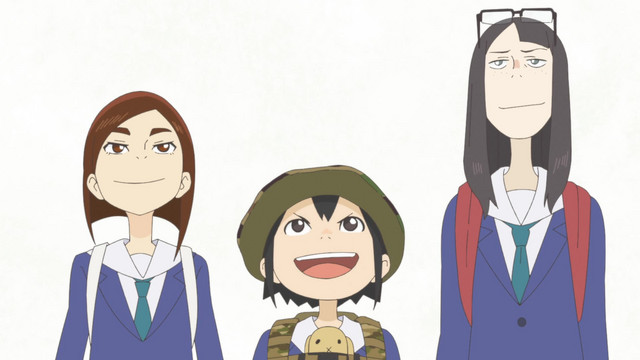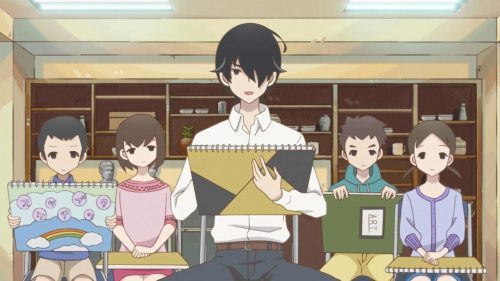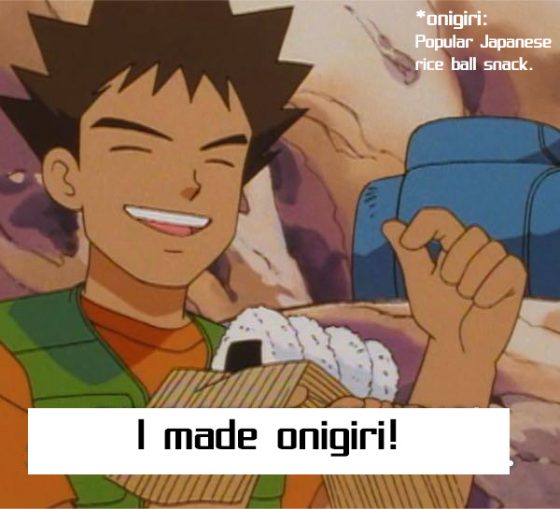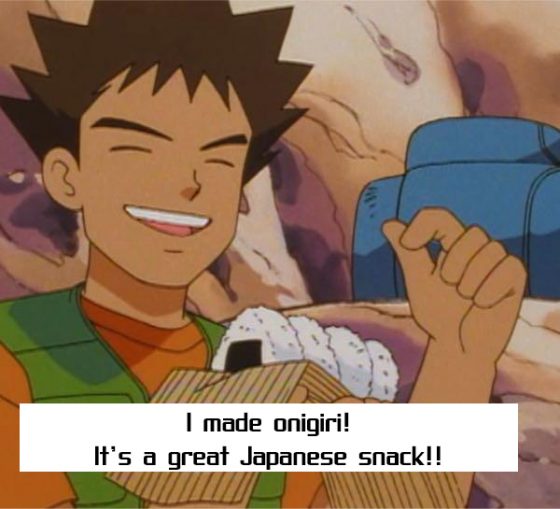
Come, my children. Let me tell you about a time when getting official subbed anime took years and fansubs were on VHS or homemade CDs, a time when another extinct creature was around; cultural notes. Even when the digital age came and getting ahold of fansubbed anime was easier (albeit not yet legal), fansubbers were adding cultural notes that explained terms, jokes, play on words, and cultural significance behind things a Westerner wasn't likely to know.
Fast forward to the present. A veritable utopia for anime fans who, between the '80s and early '00s were at the mercy of what was on TV or what the anime clubs had gotten ahold of. Now, Crunchyroll, FUNimation, HIDive, Hulu, and Netflix are all neck-deep in anime and simulcasts are not rare, with even dubs coming out just a couple of weeks behind Japanese premieres. And yet, even with globalization and faster localizations, cultural notes have gone extinct. (Ironically, Crunchyroll had a less-than-legal start so you'd think they would hav kept this around). This amazing gift that had been bestowed upon us anime otaku by other anime otaku—the ability to learn about another culture, a culture we love and treasure, while watching anime—is nowhere to be found in this endless sea of digital anime and we think it should be. Let's talk about that!
We Want to Know!
We at Honey's Anime believe that learning is everything and everything can be a lesson. And as anime fans, most of us love Japanese culture; many aiming to live in Japan, learning the language, and so on. This writer herself learned her very first about Japanese yokai and such from fasubbed anime way back when!
We here at Honey's Anime think there is much to learn culturally from anime that would make our experience of it even better, not to mention that it would open viewers' eyes to a different culture. It wouldn't be very hard to include cultural notes for those fans interested in what was REALLY said in their favorite show. Why not explain the culture behind anime instead of giving Brock "jelly donuts"!?

Fans who LOVE an anime will likely look up more info about it and the culture behind it, though not everyone does. If given some of the culture upfront, it's more likely that fans will research more about the topic and connect with the work in a deeper way BECAUSE they know more about it. Knowing WHY a creator gave a character a certain name or look, for example, makes fans feel closer to the subject matter and therefore, newcomers to anime are more likely to get hooked by the intriguing cultural facts they learn!
Promoting a Global Mentality
No man is an island and no culture is like another. We are not alone and we are all very different. That's beautiful! Why erase these bits of Japanese culture, those artistic roots of the creator(s) of the anime we are watching? Why not introduce rice balls to an English-speaking audience, for example, by explaining what they are in a short note? or even adjusting the translation just a bit? Giving a bit of info may pique people's interest enough to at least search.
No, instead, thousands of kids' worlds just stayed small and when they first saw a rice ball again (if ever!), they had no idea what it was when they could have gained that knowledge from anime. Yes, from a "cartoon"! Imagine that. They could have learned a bit about Japanese culture and maybe become interested in learning more. They could have become interested and wanted to find out more about them and learn to make them and try them. And guess what? They would have been healthier than jelly donuts! We're using an old example (meme gold!) but these opportunities to introduce the Western audience to Japanese culture are still being wasted.
In Some Cases, It's a Necessity

There are even cases where something crucial to the story is mentioned—this could be a term, a saying, a name, etc.—and it IS kept in Japanese but not explained or translated even though there is no reason for the audience to know what that Japanese word means or why the name is significant in the story or character. The same goes with names that are a play on words like Kakushi Goto from Kakushigoto—"kaku shigoto" = secret job/work, "kakushigoto" = secret—so many others. A LOT of meaning and background gets lost in these cases, even if it just seems like simple wordplay; the creator did it for a reason. Understanding these things makes anime even more enjoyable. As enjoyable as it is for Japanese viewers!
You've probably guessed—correctly—that this writer sticks to subs, and the reason is that exactly; wishing to stay as close to how the anime was intended to be watched. However, we are not saying that there is anything wrong with watching dubs! We understand that many prefer not to read subtitles and, especially younger viewers, may not have the speed and may be turned off entirely by subtitles. We don't want that!
Dubs are great and have come a long way but it wouldn't kill localization teams to keep some of the culture in the anime and just implement a way to easily and quickly share bits of culture, ESPECIALLY when essential to understanding the nature of a character or a plot device. Understanding something brings us closer to it—and we get that can be the argument for localizations where names and things are changed—but changing the meaning of the content is bringing fans closer to the idea of the anime as it was intended, but not REALLY the way it was intended.
Final Thoughts and a Proposal
Maybe we're old-school, but we feel that the world is becoming smaller and smaller thanks to technology and more and more interested in anime thanks to streaming—and we love it! Anime isn't going to become less Japanese but fans WILL look more and more ignorant where they travel to the country that makes their favorite shows and they have no idea what they're looking at or eating. We should help people's worlds expand! That's what anime does already, why stifle it? Plus, we'd get the aforementioned benefit of making the anime experience for overseas fans as close to the experience Japanese fans get by understanding where the creator is coming from at any given time.

SUBS (for illustrative purposes only)

DUBS (for illustrative purposes only)
We propose that localizations start including at least some margin cultural notes like the ones back in the day! A short floating note for a few seconds in subs and dubs meant for older viewers would be perfect, while dubs meant for younger audiences could just have the dialogue modified to explain when possible or simply use the term as-is! Otherwise, something some subbers used to do as well was to add the cultural notes and definitions on a slide at the beginning or at the end as necessary. It could even be an added "languages and subtitles" option on streaming platforms!
We understand it's "easy for us to say" but, we're sure the people subbing for companies already wouldn't mind writing up some notes too. Then there would just be a bit more to translate and that's it! It does mean more man hours, which means more money companies have to pay but, trust us, guys, it'll pay off! Fans will love this!
What do you think? Have you watched anime with cultural notes? Would you like it if they started doing that? Talk to us in the comments!

